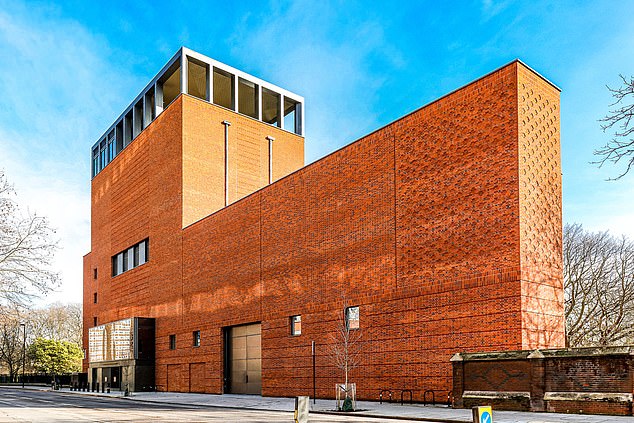The UK housing market is in a bind. Homeowners see prices stagnating or falling. Potential buyers feel that ownership remains out of reach. Tenants face soaring rents. Housebuilders are ambivalent about the future.
One point is clear, however – the country needs more homes. Some researchers say there is a 4 million shortfall, which will take years to rectify. More homes mean more bricks and Ibstock is the largest brickmaker in the country.
The firm’s roots go back 199 years to the Leicestershire village of Ibstock. Then, brickmaking was a bit of a side hustle, the main industry being coal mining. The colliery closed almost a century ago but brickmaking persisted and today, Ibstock produces one in three bricks in the UK, from bespoke, handmade blocks for Lambeth Palace Library in London to everyday material for homes and buildings nationwide.
Yet Ibstock’s share price has languished, falling from £3.20 in 2020 to £1.44 today, hit by concerns over stubborn inflation, high interest rates and a lacklustre housing market. Such worries are understandable but they have been overdone and Ibstock shares should rebound this year and beyond.
A trading update last week was a mixed bag. Chief executive Joe Hudson admitted that sales fell 21 per cent last year to around £405 million, jobs have been cut, a factory in Surrey has been closed and the housing market is likely to remain subdued in the short term.

Solid future: Ibstock made special bricks for a new library at Lambeth Palace in London
Big investors took this badly, spurred on by an unexpected pick-up in inflation last month and a raft of underwhelming updates from housebuilders in recent weeks. But Hudson had good news to report as well. The company is in rude financial health, he said. Chunky cost savings have been achieved, significant investments have been made and the medium-term outlook is sound.
A new factory near Walsall in the West Midlands will come on stream this year, making the lowest-carbon bricks in Britain, a product that is much in demand as housebuilders strive to achieve Government-mandated green targets.
An innovation arm is going great guns, building whole facades that can be slotted on to mid-rise blocks of flats and creating brick slips, which are safe and durable but far lighter than traditional products.
There is a growing concrete business, too, making floors, staircases, tiles and other masonry.
Hudson spent decades in the cement and concrete field, joining Ibstock in 2018. The firm had been through a series of owners back then, bought by Irish building group CRH in 1999, sold to private equity for £414 million in 2014 and listed on the stock market a year later in a deal valuing the business at £770 million or £1.90 a share.
The valuation raised eyebrows at the time – and with good reason. But in recent years, the business has been streamlined and investments have been made in the areas that matter. Today, Ibstock’s long-term prospects are promising.
Results for 2023 will be unveiled in March, showing that 21 per cent drop in sales, with profits expected to fall by about 30 per cent to £73 million.
Further declines could be in store this year but thereafter Ibstock’s fortunes are expected to recover at pace, with Hudson targeting £600 million of revenues by 2026 and a substantial rebound in profits.
Ibstock has traditionally paid a decent dividend and a payout of just over 7p is forecast for 2023. That may dip this year but it too should pick up from 2025.
Midas verdict: Housing markets have been tough but Hudson has taken a number of measures to ensure his business is in pole position when activity recovers. Early signs suggest that recovery is already beginning, as mortgage rates fall and interest in new homes increases. Ibstock has a rich heritage and a strong future. At £1.44, the shares are a long-term buy.
Traded on: Main market Ticker: IBST Contact: ibstock.co.uk or 0371 664 0391



